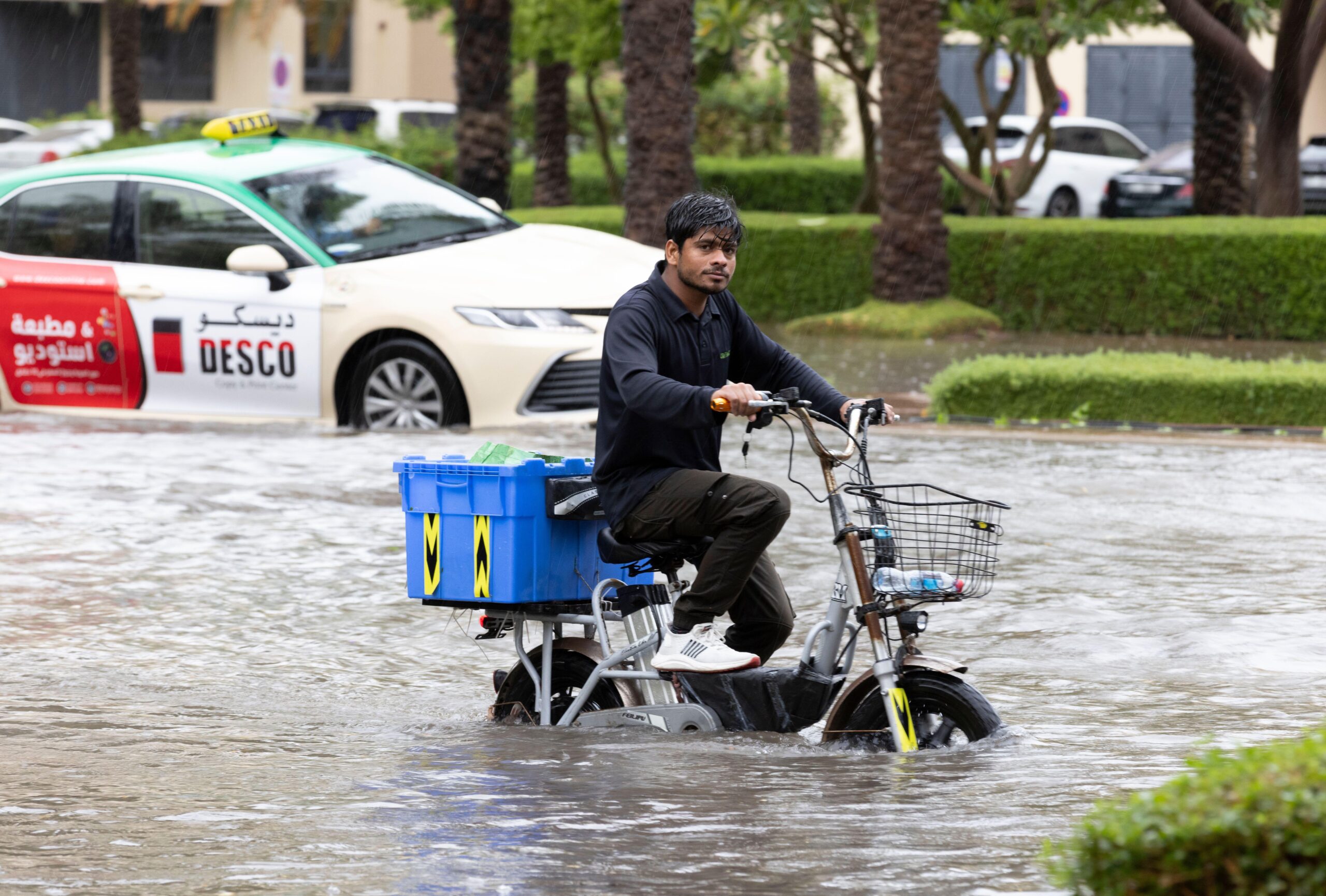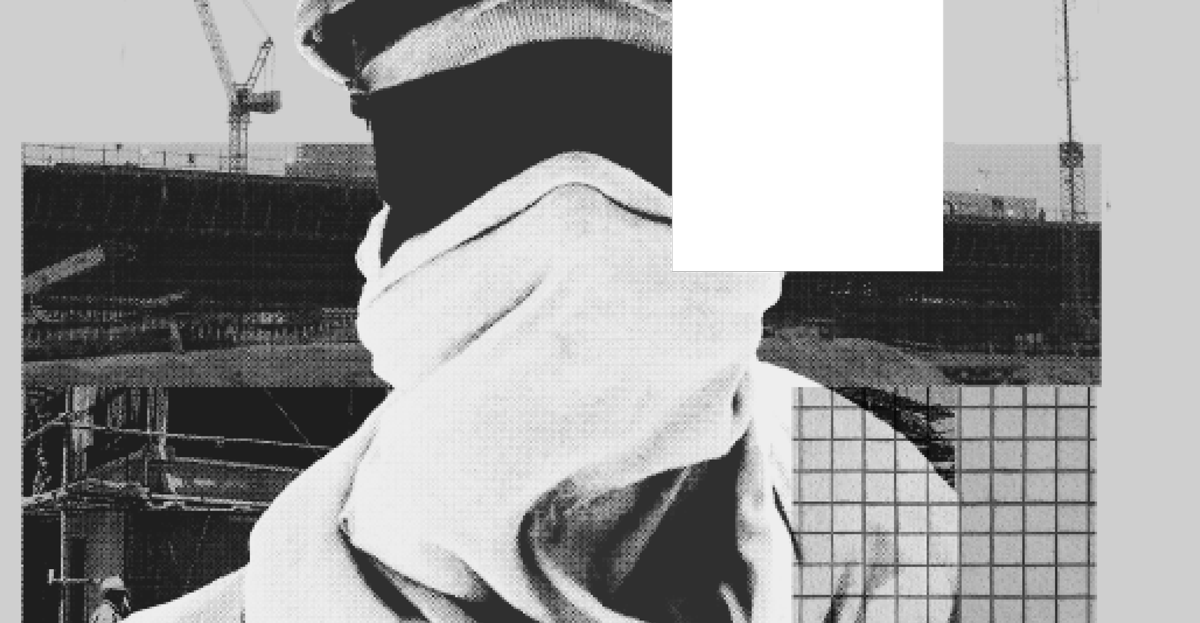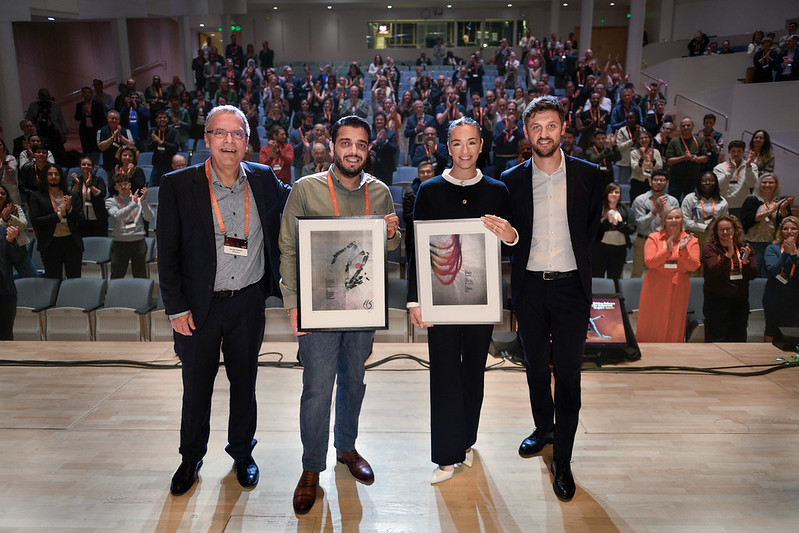
Low-income migrant workers in the UAE are being disproportionately affected by a prolonged dengue outbreak following April’s devastating floods, FairSquare said today.
On 16 April this year, the UAE experienced record levels of rainfall, causing widespread flooding, serious damage to infrastructure and housing, and the deaths of at least four people. The floods left pools of stagnant water across the country, creating breeding grounds for the mosquitoes that spread dengue, and the intervening months have seen a wave of cases of dengue.
Interviews by researchers working with FairSquare with a government official and three healthcare workers speaking anonymously, and insights from migrant workers from different emirates indicate that nearly three months after the floods, mosquito breeding sites in marginalised areas housing migrants have been neglected, and migrant workers who have contracted dengue have faced serious challenges accessing healthcare.
James Lynch, co-director of human rights group FairSquare, said:
“April’s devastating floods took a severe toll on people in all parts of the UAE, the impact made worse by climate change. The aftermath has been no different. As cases of dengue have rampaged through the community, the toll on migrant workers, who live in marginalised neighbourhoods and struggle to access quality healthcare, has been particularly harsh.”
Accurate data about the total number of cases of dengue in the UAE is not available, and conducting research in the country is highly challenging due to harsh restrictions on freedom of expression. In the immediate aftermath of the floods, UAE media reported that hospitals were reporting a surge of patients with “unusual” high fever and body aches. In May, the Minister of Health said as part of government efforts to limit the spread of dengue fever in the UAE, that the government had deployed nine specialist teams to eliminate 409 mosquito breeding sites, acknowledging that the “situation is still spreading at a fast rate”.
A doctor at a private hospital in Dubai told researchers working with FairSquare of an “unusual” sharp surge in dengue cases, as well as other waterborne diseases, while a nurse at a private Sharjah clinic said in June that his clinic was seeing more than 30 cases of dengue cases every 4-5 days, a number he described as “alarming”. According to the World Health Organisation, only the most severe cases of dengue, which can be fatal, require hospital treatment.
Mosquito breeding sites in migrant worker areas
Despite government clean-up initiatives, ponds of stagnant water that act as breeding grounds remained across the country in late June, particularly in industrial areas where migrant workers live and work, and in Emirates with less developed infrastructure such as Sharjah, Ajman, and Ras Al Khaimah. In June, the government issued guidance which included specific instructions on how to prevent mosquitoes in industrial and construction sites.
A government official with knowledge of the response to the April floods, who did not wish to be named, said in an interview with researchers that they were proud of their work in responding to the floods, but acknowledged that in industrial areas where workers live and work, pools of stagnant water remain:
“The big [breeding grounds] were dealt with right away. But there were so many that were not identified but have clearly been impacting people. We have been working on getting them removed and also enforcing truck spraying to ensure these areas are okay again. These have been in areas that are more industrial, generally.”
One migrant who works in one of Dubai’s industrial free zones told researchers there was a stark contrast in how quickly the water had been cleared up in major urban areas, as opposed to where he works and lives, and that in his area the water was only cleared after his employer complained to the authorities about workers getting sick. A resident of Ras Al Khaimah said that there was a pool of water in his neighbourhood for over a month after the rains, and that even after that was cleared, mosquitoes remained:
“They have not gone… I know many people who got sick. I know two people who went to get tested for dengue and were positive – they needed the test to take sick leave – but there are more who have not tested and were just at bedrest… God knows what diseases are out there.”
A migrant worker who lives in Sonapur, a Dubai neighbourhood home to 200,000 migrant workers, mostly men living in labour accommodation, said:
“Where I live, water had been accumulating for weeks after the rain. The big roads got cleared urgently but areas like this have had stagnant water for a very long time and, now, there are mosquitoes and all sorts of insects everywhere. And you will see a queue outside any clinic in areas like this.”
One healthcare worker said that areas where migrant workers lived and worked were “absolutely” worse off than other areas, with stagnant water remaining on the ground until June. However they felt nervous to offer any further detail for fear of getting into trouble with the authorities.
Challenges accessing healthcare for workers
Migrant workers who spoke to researchers working with FairSquare said that they faced challenges getting appropriate healthcare, and access to information about dengue and how to treat it. Their experiences depended to a large extent on whether their employer was sympathetic or proactive. One doctor who treats many low-income workers in a private clinic in an industrial area in Sharjah said that as well as physical health concerns, this was causing a “mental health crisis” among workers:
“Workers are just very worried. They think of the pandemic and the precarity that followed and they just don’t want that happening again…. Their whole lives are at the mercy of their manager and suddenly they are – many of them all at once – getting sick in a way they have not experienced before.”
The government official with knowledge of the response to the floods said:
“I think a big issue has been that workers have been getting sick and their managers are not helping them access the right information or healthcare help.”
A 34-year old Indian construction worker working in Dubai said in an interview with researchers that he became seriously ill in May. He said the company’s accommodation manager advised him to rest and take painkillers. When he asked to be taken to a hospital, the manager told him that there was no point as they would also give the same advice. He was unable to work for three weeks.
“I got a really high fever and body aches. Then I started vomiting a lot. I could not leave my bed for, maybe, 20 days. And I was not the only one; at least six or seven others in the [labour accommodation] were feeling like this.”
A 2022 report by FairSquare and the Vital Signs Partnership found that healthcare services in the UAE and other Gulf states are generally not tailored to the specific needs of the migrant workers population, and there is obvious evidence of discrimination in access to healthcare, with lack of documentation and affordability the most significant obstacles. Workers who aren’t able to access doctors often resort to the use of non-prescription medicines, which they either bring with them from their home countries, or source from pharmacies or colleagues.
A 42-year-old Pakistani woman who lives in Ajman and works in a salon in Dubai said she struggled to access healthcare after contracting dengue in May 2024. After her condition worsened despite her attempts to self-medicate, and with minimal insurance coverage, she sought support from her employer:
“I was feeling so sick. My body was burning… I asked my employers for some money so I could go to a better private clinic because I was feeling really bad, but they said that it was just all in my head and I should just rest. They were acting like they were doing me a favour for letting me rest.”
Eventually, her flatmates pooled money together for the 600 Emirati dirhams (about $160) required to see a professional medical clinic. She was admitted for three nights because of a low platelet count.
A 27-year old Ugandan man working as a security guard in Dubai said he was locked in a room by his employer – a company employing about 40 people – with around five ill colleagues, who were suffering symptoms that included rashes, high fever, body ache, vomiting, and nose bleeds. The manager sent staff members to pass food and medicines through the door.
“We were isolated. At first, we were only given painkillers and antibiotics, but after everyone had been sick for a few days, the managers called the authorities and told them what was going on. It was a big crisis actually.”
He said that his employer only took the situation seriously, contacting the UAE authorities, when some workers expressed the desire to return home, anticipating a national lockdown similar to the one that followed the COVID-19 pandemic in 2020. He told researchers that the municipality sent a team of medical experts in mid-June, who advised workers to rest, and told the manager to take workers who felt particularly unwell to hospital.
Call for action
FairSquare is calling on the UAE authorities to urgently address the disparity in post-flood clean-up efforts between higher-income and lower-income areas, directing efforts to ensure prompt water clean-up, effective mosquito control, and assistance for populations impacted by dengue in industrial and other marginalised areas. Increased public health education and resources should also be made widely available, in multiple languages, to ensure all communities are informed about prevention and treatment options.
FairSquare has also called on the UAE and other Gulf states to remove the reliance of low paid migrant workers on their employers for healthcare, making all necessary healthcare for these workers free of charge at the point of care, irrespective of immigration status or possession of identity documents. Pending this, the UAE authorities should take steps to ensure that all employers provide migrant workers with a minimum level of health insurance that offers reasonable coverage.
Background
Dengue is a viral infection, common in tropical and subtropical climates, that spreads from mosquitoes to people. While many dengue infections are asymptomatic or produce only mild illness, the virus can occasionally cause more severe cases, and even death. After recovery, people who have had dengue may feel tired for several weeks. Dengue is not directly contagious, though it can be passed from one person to another via mosquitoes. Dengue is surging worldwide, an increase fuelled in part by climate change.
At COP28 in Dubai, the UAE – as hosts – secured support from 124 countries for a global Declaration of Climate and Health, recognising the health impacts of climate change. The UAE’s Minister of State for International Cooperation said the declaration should “end any silly confusion about whether the climate crisis is a health crisis”.
Ahead of COP28, FairSquare published research about the impact of extreme heat on migrant workers constructing the facilities in Dubai for the conference, and a 40-page report researched by regional journalists, exploring pronounced challenges for the country’s migrant workers securing access to quality, nutritious food, and the broader impacts of UAE food supply chain practices on climate and vulnerable communities abroad.


